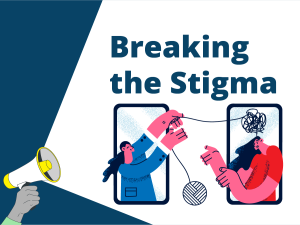Women perform many important roles in various spheres of society. In contemporary times, women have undoubtedly continued to occupy more space and take up even more roles and responsibilities. As such, mental health is paramount for them to render social participation and contribution effectually. It is therefore vital for every woman to generate awareness in terms of the factors influencing their mental health and their involvement and contribution towards it. Knowing such factors facilitates the process of overcoming the barriers that exist or those that may arise within the course of role performance. This piece takes into account endometriosis, a common gynaecological disease in women; its nature and physical effects, the link and impact it has on mental health and the importance of mental health support in management.
What is Endometriosis?
Endometriosis is a condition in which there is an abnormal growth of endometrial tissue outside the uterus. It affects roughly 10% of women in their reproductive or childbearing age and is characterized by pelvic pain that may worsen during menstruation, excessive bleeding, pain during or after intercourse, pain with bowel movements or urination, fatigue, diarrhoea, nausea, bloating and infertility or cancer in severe cases.
Endometriosis And Mental Health
Symptoms associated with the condition can also inadvertently affect your psychological and social functioning.
Endometriosis does not just affect your physical health. Symptoms associated with the condition can also inadvertently affect your psychological and social functioning. Most if not all women who suffer from endometriosis report high levels of anxiety, depression and other psychiatric disorders.
The experience of pelvic pain may significantly affect a woman’s emotional functioning. Living with the chronic pain associated with endometriosis can make socializing, working or getting basic tasks done almost impossible. Chronic pain can create a time warp, losing sight that things are going to get better. Such feelings of despair and frustration make the affected individual susceptible to anxiety and depression. Research has also shown that high levels of anxiety and depression can also amplify the severity of pain, thus creating a vicious cycle. Having one’s pain minimized or reduced to “bad period cramps ” can also make them feel isolated, misunderstood and unheard.
For women with endometriosis, negative body image can also be a problem. Physical symptoms such as pain, bloating, painful intercourse and irregular periods can affect how they view and feel about their bodies. A lot of women feel like they have been failed and betrayed by their bodies and it becomes difficult to look at themselves positively. Having to repeatedly explain your symptoms or cancel events and important plans because of having a bad pain day can make you feel like the condition is taking over your life and who you are, which can change the perception you have of yourself.
Women living with endometriosis also have their relationships on the line for strain. Having to explain their symptoms to their loved ones can be extremely difficult, especially with so many myths and misconceptions surrounding the condition. Even with a strong support system, expressing that you’re tired from managing your symptoms can still be hard. Self-blame for infertility or feeling like you’re letting your family and friends down due to cancellations can result in feelings of guilt and shame.
Management Of the Psychological Effects
Evidence of the effects of endometriosis on the mental health of affected women stresses the importance of using a multidisciplinary approach in the management of the condition. Psychological assessment steered towards identifying women at risk of developing symptoms of anxiety or depression would largely aid in providing adequate psychological support and reduce the impact of endometriosis on quality of life as much as possible.
If you are living with this condition, verbalizing your pain can be a source of empowerment. By acknowledging your feelings as valid, you would be committing to showing up for yourself and allowing others to be there for you as well. As you would seek help for physical symptoms, a mental health expert may be able to help you with psychological symptoms. Most importantly, embrace self-compassion; be very gentle with yourself and take care of yourself. Find the small things that work for you, prioritize them and yourself.
About Margaret
Margaret Wairimu is an experienced addiction therapist with Hisia Psychology Consultants.
To book an appointment with Margaret, kindly Call / WhatsApp +254 745 562 108 or book a session below.









